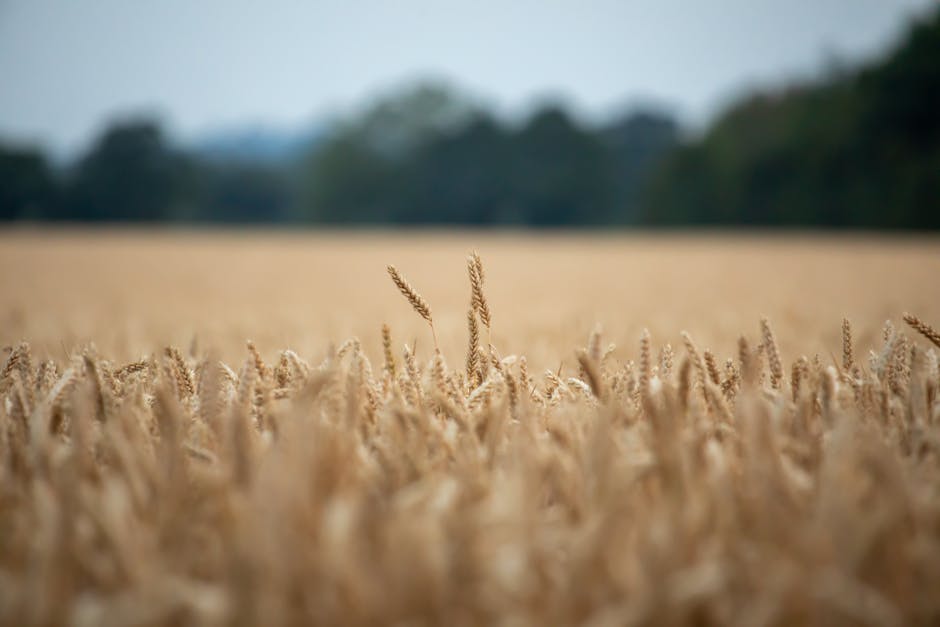Agricultural practices have evolved significantly over time, leading to increased yields and the ability to feed a growing global population. However, some modern methods, particularly monoculture farming, have raised concerns about their long-term impacts on the environment and agricultural sustainability. This essay will explore the multifaceted effects of this agricultural strategy, examining both its advantages and, more critically, its detrimental consequences.
A foundational principle of monoculture is the cultivation of a single crop species over a large expanse of land. This approach, while initially seeming efficient due to specialized machinery and streamlined harvesting procedures, often carries significant environmental and ecological risks. Reduced biodiversity is a primary concern. Monoculture farming drastically limits the variety of plant life present in an agricultural area. This simplified ecosystem can become vulnerable to various threats. Insects, diseases, and even severe weather events can wreak havoc on a homogeneous crop, leading to widespread crop failures and devastating economic consequences for farmers. The absence of diverse plant life also depletes the soil of vital nutrients, ultimately necessitating increased reliance on synthetic fertilizers and pesticides.
A noteworthy effect of monoculture relates to soil health. Continuous planting of the same crop year after year depletes the soil of specific nutrients needed for that plant’s growth. The lack of root systems from different plant types also contributes to soil erosion and compaction, decreasing the overall productivity of the land over time. Furthermore, the absence of a diverse root structure can compromise the soil’s water-holding capacity, leading to increased water requirements, which in turn can impact local water resources. This reliance on irrigation, and subsequently fertilizers, contributes significantly to water pollution.
Another critical concern is the increased vulnerability to pest infestations. When a single crop type dominates, pests have a readily available food source and optimal conditions for rapid reproduction. This phenomenon can escalate into devastating outbreaks. The reliance on pesticides to control these infestations has a cascade of consequences. These chemicals can harm beneficial insects, pollinator populations, and even contaminate groundwater sources, leading to severe ecological imbalances. Moreover, pests can develop resistance to these pesticides, necessitating stronger and more toxic chemicals, creating a vicious cycle.
A significant downside of monoculture is the diminished resilience of agricultural systems. The reduced diversity of plant life makes the entire system more susceptible to unforeseen events like disease outbreaks or climate change impacts. In contrast, diverse agricultural systems are inherently more resistant to such challenges, offering an invaluable safeguard against fluctuations in environmental conditions. This highlights a crucial balance; while monoculture can boost yield in ideal conditions, it drastically weakens the overall agricultural system’s ability to cope with unexpected disruptions.
From a socioeconomic perspective, reliance on a single crop can create significant vulnerabilities for farmers. Price fluctuations in the market, triggered by global events or shifts in consumer demand, can severely impact a farmer’s income if their entire livelihood is tied to a single commodity. This vulnerability often impacts smallholder farmers, who are disproportionately affected by market instability. Diversification of crops, on the other hand, offers farmers greater stability and resilience.
The long-term impact on the wider environment extends beyond the immediate agricultural area. The use of fertilizers and pesticides can contaminate water bodies, affecting aquatic ecosystems and potentially impacting human health. The deforestation required for extensive monoculture farming contributes to habitat loss and biodiversity reduction. The loss of habitats can have a knock-on effect across the entire ecosystem, disrupting natural processes and potentially causing unforeseen consequences.
While proponents often highlight the high yields achievable through monoculture farming, this efficiency comes at a significant cost. The focus on maximizing output frequently overshadows the crucial importance of sustainability. A shift towards more diverse, integrated farming practices is crucial to creating agricultural systems that are resilient, productive, and environmentally sound.
Transitioning towards sustainable agriculture necessitates a paradigm shift in farming practices. This includes embracing agroforestry, crop rotation, and integrated pest management techniques, strategies that promote biodiversity and minimize reliance on external inputs. Farmers should explore options for diversification, which offers significant long-term benefits in terms of both financial security and environmental sustainability. Policymakers also bear a responsibility to incentivize and support these sustainable alternatives.
In conclusion, while monoculture farming can yield high outputs in the short term, its long-term effects are alarming. Reduced biodiversity, soil degradation, increased pest pressure, and economic vulnerability are just some of the crucial considerations that make a compelling case for the need for diversified agricultural practices. Shifting towards more ecologically sound agricultural techniques is not just an environmentally responsible choice, but also a crucial step towards a more sustainable and resilient food system for future generations. A more holistic approach to agriculture that emphasizes biodiversity, soil health, and integrated pest management will provide a more sustainable future for agriculture.












